|
4.5 stars
Guess who's back?? You know it's summertime when a new Riley Sager hits the shelves. His perfect blend of atmosphere, twists, and propulsive narratives are always a hit with me. Come, join us for a deep dive into the dark pasts of suburbia in Middle of the Night... Concept: ★★★ 1/2 Pacing: ★★★★★ Mysteries/Final Reveals: ★★★★ Enjoyment: ★★★★ 1/2 At this point, you might as well call me a Riley Sager review plant, seeded to guarantee a positive review in the mix no matter the content. It feels that way to me, anyway--I seem to have an addiction to his stories and pacing structures. They're so perfectly paced for me. Middle of the Night takes place in the most Americana of locations: the suburb. And not just the suburb, but the microcosm: the cul-de-sac. Bonded by location and forced into tragedy by a disappeared boy in the late 1990s, this small group of cul-de-sac neighbors has weathered the decades with grief, life, and ever-present neighborly status. Who took Billy from his tent in the backyard one summer night? Why did they leave Ethan, the other boy on the scene, sleeping peacefully in the tent? Why has Billy never been found? Now in his 4os, Ethan is an adult haunted by the incident of his missing boyhood friend. He has recurring dreams and chronic insomnia and a bone-deep paranoia that doesn't seem to abate with his adult wisdom. At the start of the novel, Ethan's back in his cul-de-sac recouping from marital strife and housesitting for his parents. It's stirring up ghosts of all kinds in the sleepy—yet vigilant—neighborhood. And then they find Billy. Things are about to bubble to surface of this sleepy community whether the neighbors want it to or not... AH. Another winner from Sager. I said it at the beginning of this review and I'll say it again—I just really, really like his stories. The formula works for me and if you're a fan of his earlier books, let's just say you're going to love this one too. It's spooky without being a paranormal-driven narrative. It's split-timeline with the 1994 events spliced between Ethan's modern-day dramas in the neighborhood to create such perfect tension. And most of all?? It has some red herrings and distracting elements that make you feel like you're on top of the twists...and then it gets you. Even if you get some of it, there's enough nuance to the final third act that I bet you'll be pleasantly surprised by at least something. (Always a treat to be partially surprised by a mystery when you've previously read/watched so many twist formulas in media.) I am very pleased to have this join my Sager shelf. And I'm already ready for the next one!
0 Comments
4.5 stars
The third mystery romance from Kristen Ashley's Misted Pines series, and my personal favorite?? This was so adorable, sweet, and engrossing. Characters: ★★★★★ Setting: ★★★★ Plot: ★★★ 1/2 Writing style: It's a KA book, so keep this in mind as her writing style is Very Dramatic and she loves a good one-sentence paragraph (like, REALLY loves it) New to the Misted Pines series? I recommend readers start with book one, The Girl in the Mist, because this series of interconnected standalone romance pairings is best enjoyed in order. My review of The Girl in the Mist (Misted Pines #1) here. My review of The Girl in the Woods (Misted Pines #2) here. Nadia Williams is trying to recuperate and figure out her life in the wake of tragedy. When the cozy cabin shows up on her online search in the quaint small town of Misted Pines, Nadia has a gut feeling that it's the right spot for her. She abandons her high-rolling Chicago life for the woods. Riggs, a single-dad bachelor who works high-end craftsmanship commissions, lives on the small lake that Nadia's rental cabin sits on. He's a good time guy, a loner who's never wanted for temporary female company, and he's not pressed about Nadia living down the way. After all, no one stays in that cabin for long. But this good time guy and this healing woman with deep secrets are about to fall into each other in a big way, as Misted Pines is becoming known for one thing in particular: murder and drama. There's a legend of ghosts on Nadia's cabin property, with a long history of renters being run off the property in the middle of the night. People died on that land violently and the community has never fully recovered. Somebody has secrets to keep, and at the heart of the mystery is Nadia's small cabin property. Riggs and Nadia are caught right in the middle of it. With an attraction between them, individual baggage behind them, and an uncertain perpetrator in the woods, these two find that sometimes fate has a path in store for you—whether you're ready for it or not. The Woman by the Lake was a romance novel that took me partially by surprise. Which is probably on me, because I knew I was a huge KA stan and I knew that I had fallen in love, slowly, with this series. Why I was totally blown away with my love for this one in particular, who knows. For frequent KA readers like myself, the Misted Pines series is very unique. Kristen Ashley is known for her romantic and plot-based drama, her usually metropolitan settings, and her very large ensemble casts. Misted Pines has very little of those tropes—it's a minimal cast (single digits!), the drama is centered squarely on the plot and not the romance element, and it's so far into small town territory that it's in the literal woods. So that means all the "fluff" is scraped away from these stories, leaving the reader with what is at the core of all great KA tales: the romance itself and the character dynamics. If you're a romance reader, odds are that you love the character dynamics. That's what those stories are often about—the feel goods, the journey to love, the dialogue, the angst between the two leads, and the emotional core of the tales. (And for the smut readers, some seriously good times in the sheets too.) The Woman by the Lake shines with its romance dynamics and the sweet love story at its core. It's bottled up feel good, and I loved every second of it. Thank you to the author for my copy in exchange for an honest review. 5 stars
This was quite the experience. I’m not sure how to talk about it? ...But I'll give it a whirl. I feel like Pam Godwin is in her own category and should be reviewed and talked about as such. Concept: truly dark, truly a Pam experience, truly gripping Sense of danger: ★★★★★ Characters: ★★★★★ I have no idea how to talk about this book—I feel that way about most Pam Godwin stories, let's be honest—because it's one of those stories that's meant for a very select readership and those readers often find these stories organically on their own. So please understand me when I say that this book is NOT for everyone. And it's not even for most dark romance readers? It really, REALLY depends on your personal boundaries and preferences. Let's pitch it like this... Did you love Credence by Penelope Douglas , but you wanted a lot more angst with a real polyamorous angle, a lot more trauma, a lot more triggers, and truly terrifying scenarios? Do you love horror and thriller books with twisted sexual angles in them? Do you have the will to experience realistically paced triggers on page? If you answered yes to all three of those things, then keep reading this review. (If you answered no, that makes sense and I love that for you, but then do please check out some other books instead of this one.) Hills of Shivers and Shadows is a story about survival, first and foremost. And a love story as a distant second subplot (that clearly will grow in the later two books in this trilogy). Don't come for the romance—it's not really about that. It's a study of psychology, of locked-room decision making, of only hard choices and no ability to abstain. What would you do if you were trapped and couldn't get out? Are you the type of character who, when caught in a bear trap, would chew off your own foot to survive if you needed to? Could you do it? This is the kind of questioning that Pam puts our characters through. And it's the kind of gripping, engaging narrative style that forces the reader to consider those same questions of evil versus survival and the depths of human resilience when placed in the darkest of nights. It's a 5-star read for me. But let me explain why, because I don't want to say it's a favorite because of the trauma or the triggers—the pain and traumas in this novel are NOT fetishized for the reader. This is a 5-star for its grip, its realism, and the sheer kudos that must be given to Pam for how absolutely singular this story was for me. Trigger warnings abound in this novel. Click here to visit the author's website to view the list. Thank you to the author for my early copy. 5 stars
Note: This review is an older one of mine that somehow missed its review highlight. Because it is older, it's missing my usual long-form review format. I hope you enjoy this "reader's digest" version of my thoughts! Broken Harbor was such an interesting installation of the Dublin Murder Squad, and it definitely feels similar to French's first novel, In The Woods. This fourth installment of the Murder Squad follows Scorcher, a "my way or the highway" detective with a haunting childhood who ends up working on a truly bizarre case. In one of Ireland's abandoned house developments, in a town that used to be called Broken Harbor, a family is found dead. Two kids suffocated upstairs, the parents gruesomely attacked on the landing. The mother is alive, but spends much of the novel comatose in intensive care. The murder is chilling, but the true fear comes from the state of the family's home—there are holes cut into the walls and the ceiling, obviously done on the fly and monitored by several video baby monitors. Someone's been watching this family. And we don't know who, or why. The questions surround Scorcher and his partner, and French does what she does best: she chokes her protagonist with layers of the past and present, cascading into a crescendo that you can't help but become absorbed in. I find all of French's novels gripping, this is true, but Broken Harbor was an easy slam dunk of so many of my favorite things—the claustrophobic setting, the "watched" element of the found footage, the whodunit and whydunit converging into one mess. You won't be able to put this book down until you know the answer. And that answer might just surprise you... Familiar detective paradigm aside, this novel truly crackled with suspenseful energy. French does it again. 4 stars
This novel about an atmospheric, creepy island and the haunting revelations of buried angst and secrets ending in a gory finale isn't for everyone—but wow, this hit the spot for me! Atmosphere: ★★★★ Angst/Drama: ★★★★★ Horror elements: ★★★★ Plot: ★★ 1/2 Laney is a divorced teacher with a dead sister, a rich ex-husband, and a niece now under her care. Her ex-husband gifted her their rich island property in the middle of Lake Superior, and while Laney loves it to pieces, she doesn't have the money to pay for it alone—so she rents it out as an exclusive rental property for vacationers. She hates every moment of it, but there's no other choice. So when Laney receives a call from a renter that blood and scratches have been found in a closet, and pentagrams are all over the property, she's pissed. Someone's throwing a mean prank and now she's got to fix it before the property loses more revenue. Armed with her niece, Madison, and sheer will, Laney heads to the island. However, when she gets to the shore prior to heading over to Hemlock Island, Laney discovers quite the scene: her ex-husband, his sister and Laney's ex-best friend, and two other people from Laney's past that she'd much rather forget. With spooky shenanigans and sinister consequences awaiting them, the last thing Laney needs is this tangle of interpersonal drama. But it's too late, and now this motley crew finds themselves trapped on an island—and what they're about to find will change them forever. I would categorize this novel as one of those hybrid, in-between concepts. Not quite horror enough, not quite thriller enough, not quite interpersonal drama enough. And for the detail-oriented lovers, I can see the disappoint rearing its head from the very first few chapters. This is a novel based in action, dialogue, and tension. All taking place on a truly gripping island setting in Lake Superior on the Great Lakes. (Which is in my neck of the woods as a Michigan girl, so let's be real, this was a huge sell for me.) For me, a reader who loves drama, action, and clean prose focused on goals in her mystery/thrillers, Hemlock Island was a win. I loved the tension, the secrets bubbling to the surface, the surprises blatantly hidden and revealed at the proper times. This isn't a shocking whodunit, or whydunit, or even meant to be truly surprising/shocking—instead, I found the wins in Hemlock Island to be the sheer enjoyment of the unfolding story and the ruthless practicality of the characters faced with a horrifying scenario. Come for the creepy island. Stay for the creepy island + the politics of this twisted tangle of friends and lovers and enemies. 3.5 stars
An English manor home with secrets. A family history mired in murder and mayhem. And a steamy romance just waiting to erupt... Concept:★★★★ Pacing/Plot:★★ Enjoyment:★★★ 1/2 Before I get into anything at all about this book, I'd like to state for the record that I'm still a Kristen Ashley mega fan. Not a single month goes by without me reading a new KA book or rereading an old favorite for comfort. So if this is the first review of mine/others that you're seeing for a book from this author, I encourage you to check out my other reviews. Just because this one didn't become a new 5-star favorite read of mine doesn't reflect on my very high ratings of her other books. Check those out, and try this one for yourself! Daphne Ryan, American billionaire heiress to her retail tycoon father, is on her way to a remote English manor house with her stepmom, Lou. They're both not looking forward to their destination. But family duty calls.... Portia is Daphne's spoiled younger sister. The one who's a pain in the ass, pouts and acts out to get what she wants, and is constantly at odds with her sister because according to their late father's iron-clad will, it is Daphne and Lou who hold the strings to Portia's inheritance. Portia's asked Daphne and Lou to come to Duncroft, the English estate of her new boyfriend and his family, to impress the parents and show off how well she's doing in life to get Daphne to loosen the noose on her money. They've been invited for an entire week. No distractions—just Portia, her family, and David's entire family. At Duncroft. Mhmm, awkward yet? Add into the mix: Ian Alcott. David's older, sexier brother. Ian hates his role in the aristocracy, he's had enough of David and Portia's bullshit, and he's been invited to stir up further trouble. And he's got his eyes on new prey... Daphne. But Duncroft isn't just a silent setting for this complex family drama played out over one idyllic week. This manor house has secrets, and it goes bump in the night. And it has some unsolved mysteries that it wants solved. Daphne and Ian are about to get a whole lot more than they bargained for in this week. And it's going to get steamy... Too Good to Be True was an entertaining read. Kind of like spending a fun week with characters playing house in those stately estates featured in our favorite British TV shows and movies, I enjoyed the vibes of this story a lot. Who murdered the mistress off of the balcony? Was it the lord of the manor in the Turquoise Room? The younger brother in the Brandy Room? Etc. Etc. As a Clue, Pride and Prejudice, and Agatha Christie fan, I had a very fun time with these fun little details and the engaging mini-mysteries. In terms of the actual plot and romance—sigh, okay, you've got me. I had a slightly harder time here. I think it was the fact that this full-length novel was originally written as a Kindle Vella. The mini-episodic story structure—Vellas are produced in short segments, like old newspaper story installments, over time—was definitely still at play here in this longer novel. As a marathon/endurance reader who reads books in as few sessions as possible, this was a hard sell for me as I was very aware of that structure going in and it felt like it repeated its own structure ad nauseum in the middle of the narrative. However, that being said, I think this a fun read for those who just want to rest their brain a while with these fun characters in a very classic setting. There's a dash of mystery, a dash of historical, a dash of family drama, and a dash of steamy romance. It is a very fun sampler platter of a lot of good tropes! Thank you to the author for my copy in exchange for an honest review. 4 stars
The first book from this author from a male point of view?? And a heavy mystery plot?? Kristen Ashley is really branching out, and I'm here for it. Pacing: ★★★ Plot: ★★★★ Enjoyment: ★★★ 1/2 Writing style: It's a KA book, so keep this in mind as her writing style is Very Dramatic and she loves a good one-sentence paragraph (like, REALLY loves it) The Girl in the Woods is the sequel to The Girl in the Mist. Yes, you could start with this one first as it's a new story arc—but it's a richer reading experience if you read them in order. Rus is an FBI detective on the hunt for the Crystal Killer. He's tired, he's jaded, and he's pretty sure he's done with FBI work in general. And he's definitely done with murderers. But when the Crystal Killer strikes in Misted Pines, a small town in the Pacific Northwest that's already seen their fair share of shit, Rus has no choice but to make the trek. And it's another murdered girl. (Rus is bone-weary of finding cold girls in the dark.) Unfortunately for Rus, there's a twist to this murder: while it's done in the style of his Crystal Killer, it's not...quite... right. So now Rus has a copycat killer on his hands AND the worrisome wrath of the real murderer to come once he finds out someone's got his calling card. Suffice to say, things are not going well for Rus. But things look up when he meets the local burlesque club owner, Lucinda (Cin) Bonner. She's everything Rus could want in a woman, and she's a level of competent that he can't help but want to have at his side. Misted Pines might have more for Rus than just his ticket out of dodge. It might be what he was looking for all along... Y'all, this series continues to be unlike any of this author's prior works. It's obviously a KA book—swoony men, drama-drama, and her characteristic writing style that drives me nuts but keeps me coming back--but there were several things in this one that really shook up her canon. And I loved it. 1.) The ENTIRE story was from the male perspective?? Rus is running the show, we don't get Lucinda's POV. This was fresh for KA and honestly fresh for most indie romances I've read. Rus was a very interesting and clearly male gaze for us to have. I liked it, I wouldn't mind seeing more of this. 2.) Of all the Kristen Ashley romances I've read, this pairing was the most mature and lowkey of all of them. Lucinda was an adult who made sound choices, Rus was an adult who made very reasonable choices, and their romance itself was solid. No spoilers, but let's just say there is usually more drama in the romance itself for KA stories. (I love that drama, but this was interesting and I liked it more than I thought I would.) 3.) It completely blurred the line between a mystery/thriller and a romance story. Was it romantic? Yes, as much as I could find a sole-male POV window romantic from my cis-het female perspective. Was it also a gory, descriptive, and pulse-pounding thriller? Also yes. In fact, if I had to pick one shelf for this series to sit, I'd actually place The Girl in the Woods on my thriller shelf, because that's the more natural spot for it to sit. The romance took a backseat to the plot in this one. Which ALSO surprised me, by fact that I loved that too more than I assumed I would. Overall, another winner in the KA index for me. (I am a very biased audience.) Pick this up if you like male POVs, thrillers, and well-rounded romance leads. Thank you to the author for my copy in exchange for an honest review. 4 stars
Loved the concept, loved most of the execution—I think this debut slightly fumbled the landing. BUT that being said, the vibes and concept were enough to keep this a personal favorite. Concept: ★★★★★ Plot/Pacing: ★★★ Enjoyment: ★★★★ Imagine this: You visit an island. Something is off about it. The people are nice, albeit your standard rural area standoffish vibe. The island itself is a beautiful piece of land off the coast of Northern Wisconsin. But there's something about these people—their clothes are dated, their cars are all rust buckets, their music is 20 years out of date. And weirdest of all... you can't find anything more tech savvy than a Walkman and a boom box. You realize the town is acting like it's 1994. And when you catch some members of the town captivated by seemingly "live" coverage of OJ Simpson's car chase in California—and then you catch them watching it multiple nights in a row—you realize something is seriously, seriously weird here. Because the entire town KNOWS it's not actually 1994. But they're acting out the scenario anyway. And then you find out that people sometimes disappear. Welcome to Clifford Island. You might not make it off... Dead Eleven is a horror release that I found out about randomly on Goodreads one day, and IMMEDIATELY knew that I needed to have it. From that pitch you just read, can't you see why?? What a concept. Layered into that killer concept was a mixed-media, brother/sister, and past/present timeline angle that I found too good to resist. So I bought this and read it almost immediately. Ultimately, I think this debut did a few things perfectly: the vibes, the lingering/creeping dread, the pulse-pounding "I need to know what happened" element that keeps you reading late into the night. Where this book fumbled was in the ending. I think it wasn't bad, but it wasn't as spectacular as its first half implied it would be. But then... maybe it will for you. Let me know! Eagerly looking forward to more horror mixed media from this author. 3.5 stars
Long-time fans of Kristen Ashley will be pleasantly surprised—I sure was! Very plot-forward and emotionally wholesome, The Girl in the Mist is the start of a new leg for KA. Characters: ★★★★ Emotional angst: ★ Plot/Pacing: ★★★ Let's get two things out of the way right at the top: This book felt EXACTLY like a Kristen Ashley book in many ways. It also, surprisingly, did not. Ashley's extremely distinctive writing style was present here—in particular, her dramatic pacing of single sentences as paragraphs used in a blatant way for dramatic layering of thoughts. This is a "love it or hate it" style, and I'll be honest, I have to be in the perfect mood for it. (I also seem to feel differently about it based on the format I consume the story? Kindle is the way to go, folks. The printed page really highlights this style and drives me nuts to look at from a distance, whereas the ebook format disguises this technique and you get into the groove.) However, the distinctive KA styling aside... I was taken aback by this story. The Girl in the Mist was a different type of romance for my expectations, and the setting/plot/characters were a refreshing experience. Unlike many, many other KA stories, this one makes a fantastic entry point into the KA universe and could be read as a standalone series too. Delphine LaRue is a famous actress-turned-author who has a stalker. At the beginning of this novel, we learn that Delphine's stalker has escalated to the point where she needs to leave town and go lay low for while—she's not in the witness protection program, but she's in the KA commando version of it. (Longtime fans will recognize some names, even though none of the names are actually present as active characters in this story.) So Delphine escapes to a cabin on the lake in the small Pacific Northwest town of Misted Pines. It's a small town where everybody knows everybody. And everybody already knows Delphine LaRue. This interesting, small town vibe aside, Delphine also has an interesting development. She meets her smoking-hot neighbor—single dad and retired FBI profiler, Cade Buchanan. When a local girl is discovered dead, Misted Pines circles the wagons and Cade Buchanan gets involved. Delphine, being an empty-nest mother herself and an independent woman of means, also gets involved. Sparks fly and situations escalate as the murder mystery at the core of this small town exposes the rotten roots of the "picture perfect" Misted Pines neighborhood. My thoughts: I have some complicated feelings for this story. On the one hand, I think it's one of the most well-plotted and well-built worlds that I've read from this author. The mystery had some twists that I didn't see coming. The characters experienced quite a lot of emotional growth and unique situations. The town as a character was strong. But... your girl loves drama. (Me, it's me, I love the drama.) And I come to Kristen Ashley for that bad-boy, ridiculously Alpha male drama that involves a lot of running around, relationship drama complete with fights, making up, and all that jazz. And Delphine and Buchanan just...didn't engage in any of that. I think it was a combination of their ages (they've done that before, they're wiser, they don't have the time for that B.S.), and the fact that the romance wasn't the core of this story. Their real-life drama was the murder mystery, so they didn't bring that into the home space. Which was... fine. But there were several moments where Delphine and Buchanan had lots of reasons to have a lovers' drama and/or at least a playful dialogue about things and KA just... dropped it. We didn't get any of those highs and lows. This was emotionally wholesome to the point of being flat for the romantic pairing. And, because of that, I found myself taking forever to finish this book. (Forever in KA standards, at least, whereas I usually start a KA book and don't put it down until it's done.) I think this book will have a wide readership, and it deserves it, but I do hope that the further books in the series give us a little Drama Drama for my drama-queen soul. Lol! 2.5 stars
I went to from super hyped about this concept last year...to a lukewarm reading experience....and then a few days later to the realization that—despite my love for Roshani Chokshi—I just did not like this at all. I think this has a certain readership, and I'm sad I'm not one of them. Concept: ★★★★ Sense of uniqueness: ★★ Investment into the characters: ★ Once upon a time, a man who believed in fairy tales married a beautiful, mysterious woman named Indigo Maxwell-Casteñada. He was a scholar of myths. She was heiress to a fortune. They exchanged gifts and stories and believed they would live happily ever after—and in exchange for her love, Indigo extracted a promise: that her bridegroom would never pry into her past. Indigo is the beautiful and enigmatic muse woman of everyone's dreams. She's too flawless, clearly a bit dangerous, and so beautiful that you can't look away. The Bridegroom certainly can't. He loves his wife more than life itself and is willing to follow her into the dark. One day, Indigo receives a message that her aunt is dying in her childhood home, the House of Dreams. Taking her bridegroom with her—this man is never named, so apologies for using "bridegroom" over and over again, it's a part of the dream-style repetition in this novel—they arrive at the surreal and darkly Other house. It's while we're exploring this elaborate house filled with the echoes of secrets that we meet our second POV: Azur. Azur's timeline is during Indigo's childhood, and she was Indigo's everything. A childhood spent surrounded by magic and twin ties and secrets and oaths, Azur and Indigo were two sides of the same coin. It was going to be Indigo and Azur, forever and ever. But there's no Azur here with Indigo and the bridegroom. As the bridegroom explores the House of Dreams, Azur's tale unfolds in the chapters in between. The House of Dreams has witnessed a lot of secrets, and it has some secrets of its own. Will the bridegroom be able to keep his promise? Or will he look back into the dark and find out the truth about Indigo's past? Alright. So I'm not going to dissect the plot or anything here. I think this is a story that is intentionally like a fable, and more importantly, intentionally like the echoes of a story arc that some of us readers have likely read before. It's also a story that cares more for its ominous atmosphere and sense of lyrical flow than its concrete plot. There's nothing wrong with any of that. But I will say that I wish this book had brought some more things to the table. For how drawn out it felt, for the amount of actual plot that happened in its pages, I needed more as a reader. I wanted something surprising, I wanted this very familiar arc to bring something fresh as a payoff for its very slow pacing. I needed to feel closer to these characters that felt, emotionally, like they were separated from me by layers and layers of glass. I just needed... more. So, if you're like me and the above items bother you, I'd skip this one. But if you like the concept and don't mind that kind of thing, I do still recommend this one. |
Amy Imogene ReadsJust someone looking for her own door into Wonderland. Categories
All
Archives
July 2024
|


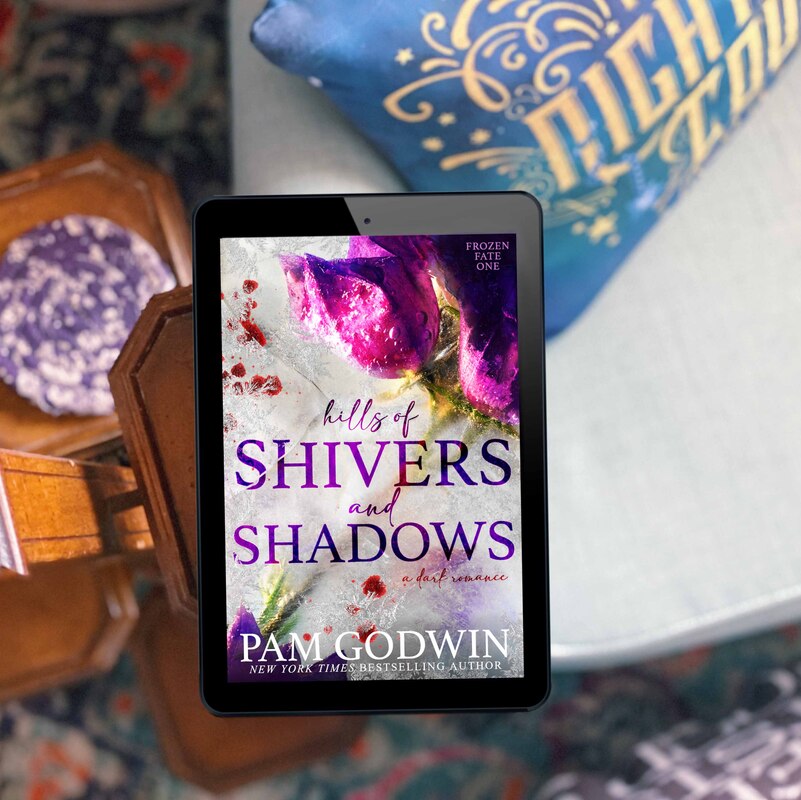
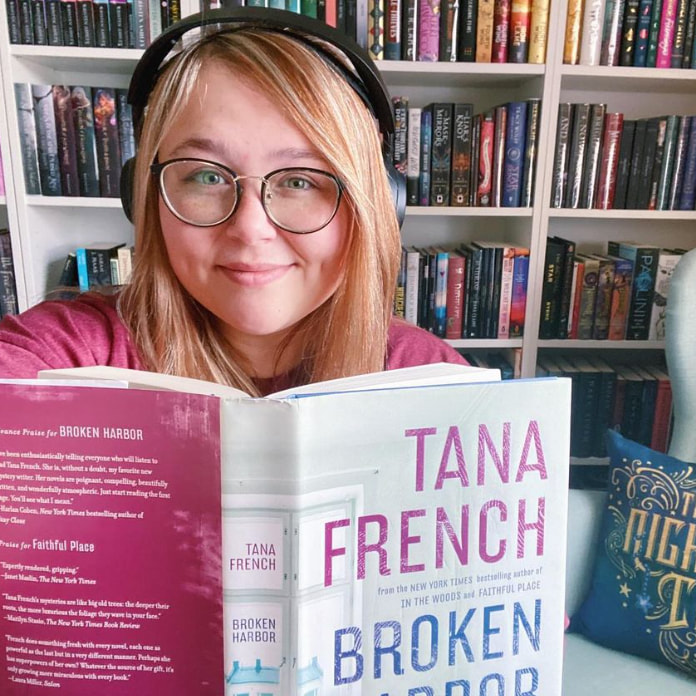
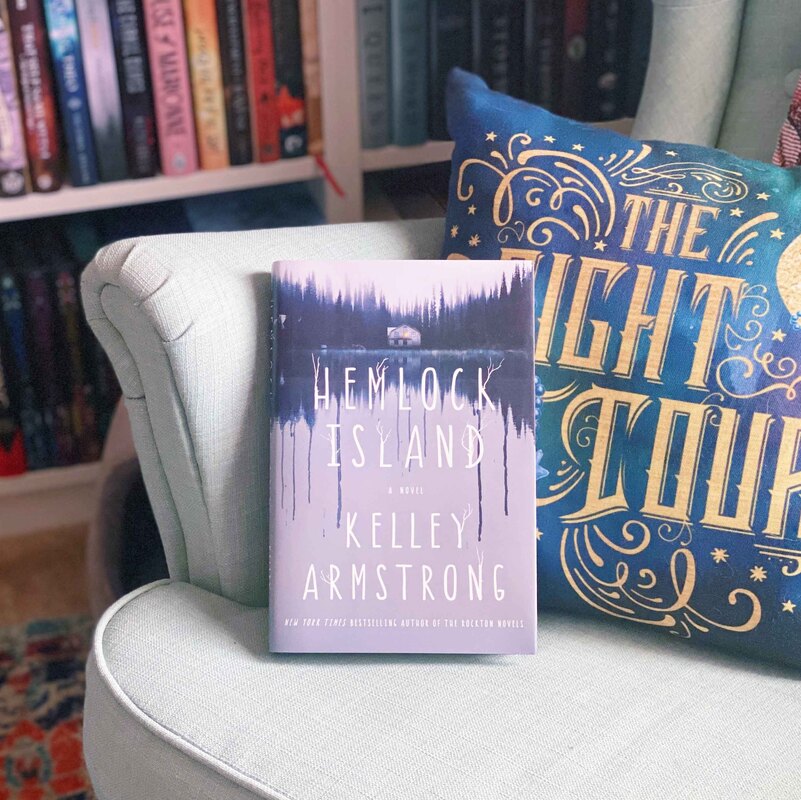

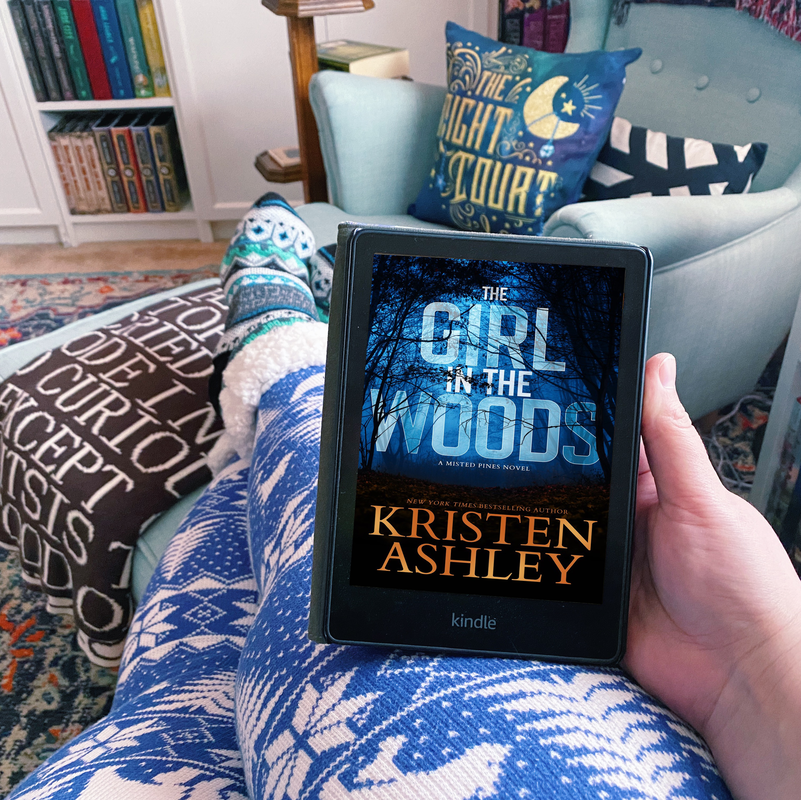
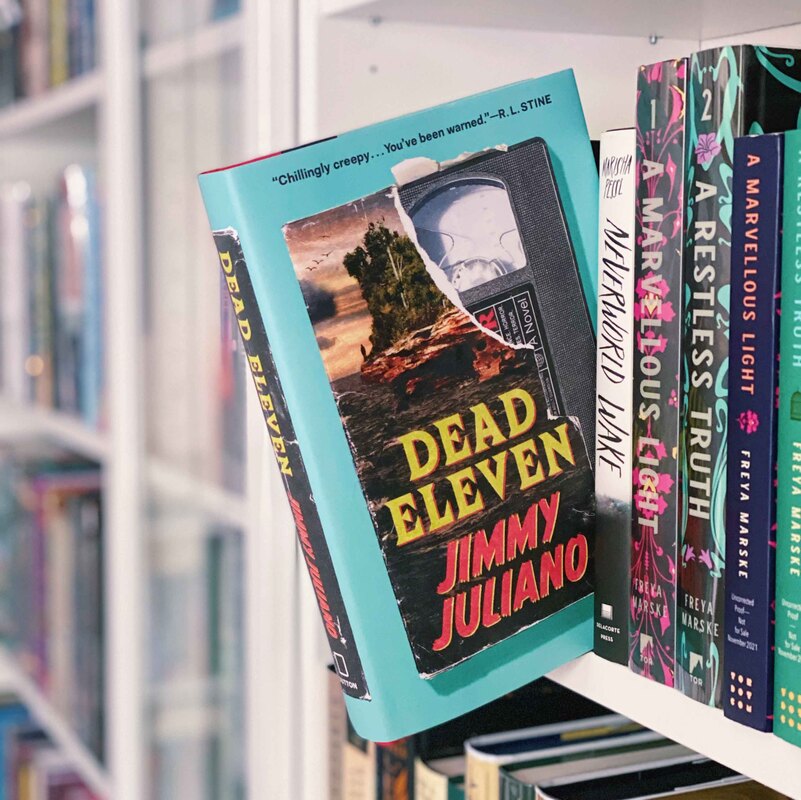
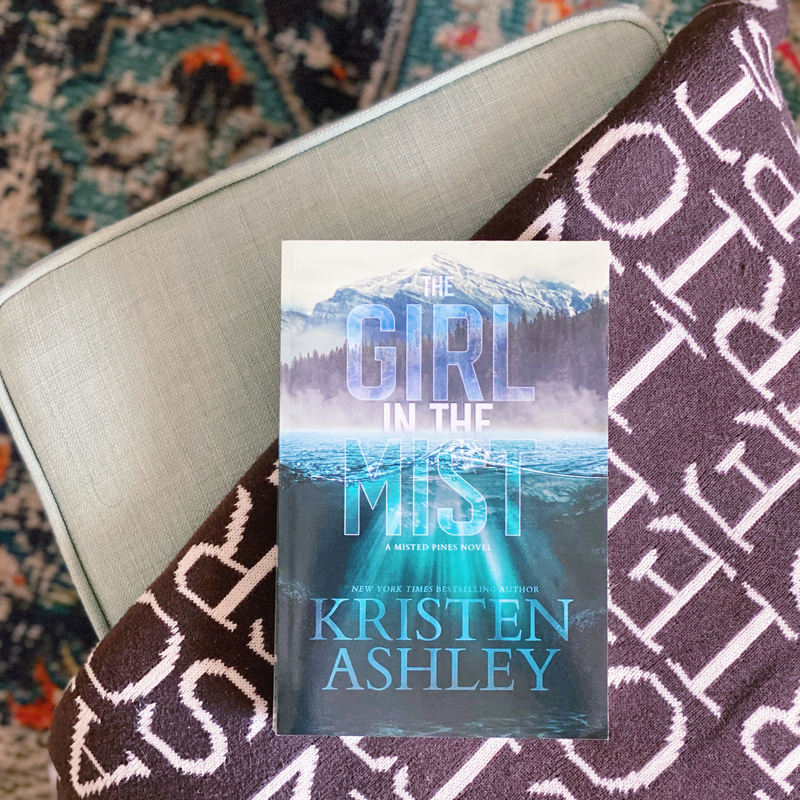
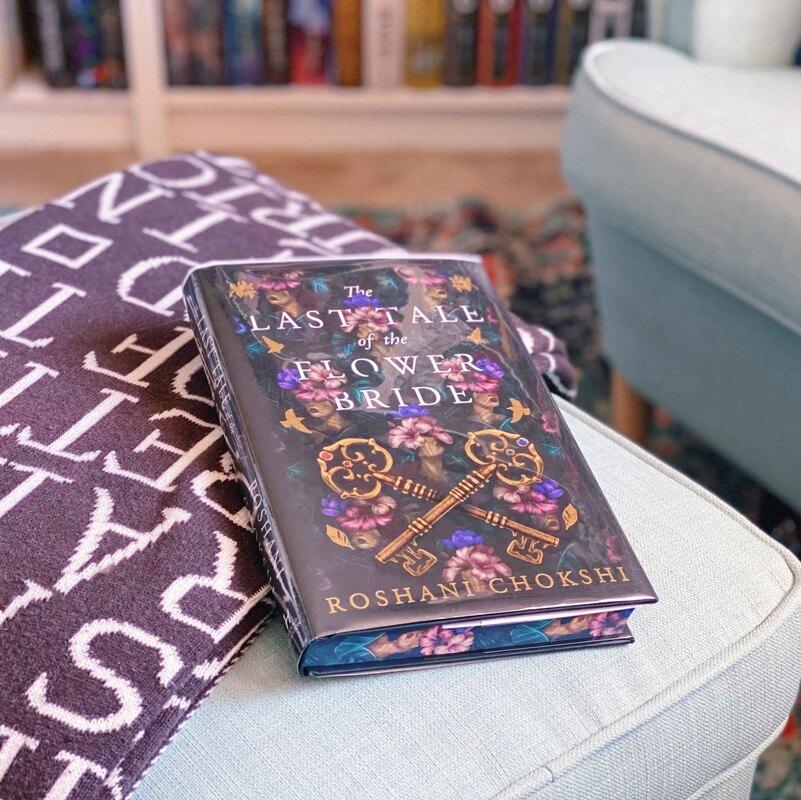

 RSS Feed
RSS Feed
